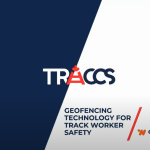Bridging the Skills Gap: How CAP Technology is Reshaping the Construction Workforce
The construction industry is undergoing a transformation with the advent of connected autonomous plant technology. Connected autonomous plant refers to the use of advanced sensors, GPS technology and machine learning algorithms to create self-driving vehicles and equipment that can operate independently on construction sites.
This technology is changing the face of construction by making it more efficient, safer, and sustainable but alongside the technological “Platform” innovation in the construction industry, a key part of digital transformation is to embed this technology into “Processes” and crucially with the third “P”… People.

The UK construction industry has long been facing a skills gap, with a shortage of skilled workers in many areas. This has been caused by factors including an ageing workforce, low levels of investment in training and education and a lack of young people entering the industry. More specifically, a Construction Plant-hire Association (CPA) study concludes that more than four in ten (43%) construction plant workers are aged 45 and over. Conversely, fewer than one in ten (8%) are aged 24 or under.
This shortage has the potential to impact the industry’s ability to deliver major infrastructure projects on time and within budget, as well as the quality of construction work. To address the skills gap, the UK government has been working with industry bodies to invest in apprenticeships, training, and education programs to attract and train the next generation of construction workers.
According to recent statistics, the number of young people entering the construction industry in the UK has been declining. In 2019, only 6% of the construction workforce was aged under 25, compared to 15% in 1990.
The interim between the status quo of operator on-site plan control and the fully automated plan is the concept of operator remote control plant. This further strengthens the gender neutrality, flexibility, and youth-oriented push where a worker can commute to a regular office location (or even work from home) to complete their construction-based tasks regardless of site location. This is also more conducive to part-time/flexi-time working arrangements which are beneficial to all staff.
How Autonomous Plant Helps Solve the "people" problem
The construction industry offers many benefits for younger workers, such as
Job Security
Construction is a vital industry that is not easily outsourced, making it an attractive option for those seeking job security.
High Earning Potential
Construction work can be well-paying, especially for skilled tradespeople, making it an attractive option for young people seeking good salaries.
Positive Impact
Many young people see construction work as a way to make a positive impact on society by helping to build and maintain the infrastructure that communities rely on.
Apprenticeships
The opportunity to receive on-the-job training and apprenticeships in various construction trades is a motivator for many young people.
However, the additional motivational layers of working in an exciting, technologically advanced, cutting-edge field may sway more young people, often referred to as the “Playstation Generation” of digital natives towards the industry. This will also hopefully begin a new era in the construction sector of innovation being more readily and quickly adopted.
Furthermore, the lack of location flexibility and tougher working conditions of being a plant operator may dissuade potential candidates from joining the profession – and a large part of this is removed from the role when CAP is deployed. It could be argued that operating CAP does not have intrinsic gender stereotypes and will lead to more women feeling that working in construction is an option due to more flexible working arrangements.
From Shortage to Success
Connected autonomous plant technology is playing a vital role in the construction industry by bridging the skills gap that the sector has been facing for years. By automating tasks and reducing the need for human intervention, CAP is reducing the reliance on skilled labour, which is in short supply.
This technology is also attracting a new generation of workers who are drawn to the innovative and dynamic nature of the construction industry. CAP technology is transforming the construction industry, not only by improving efficiency and productivity but also by building a better workforce for the future. It is also clear that businesses that invest in this technology will have a competitive edge in the future. However, making this transition can be challenging, as it relies on robust resilient connectivity to implement and operate. This is where the experts at Onwave come in. Our team of CAP specialists can help you navigate this transition, providing you with tailored connectivity solutions to meet your business’s unique needs.








